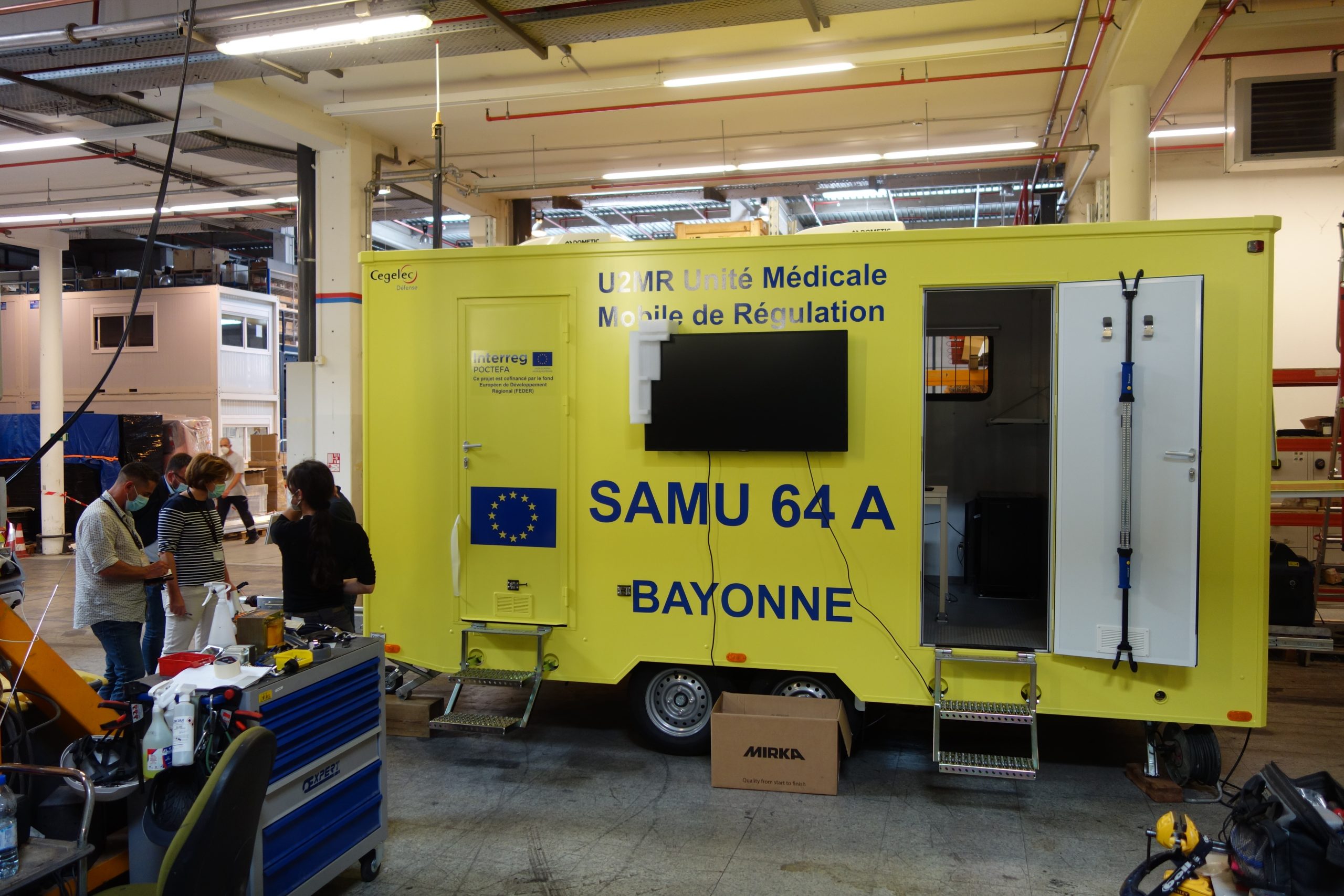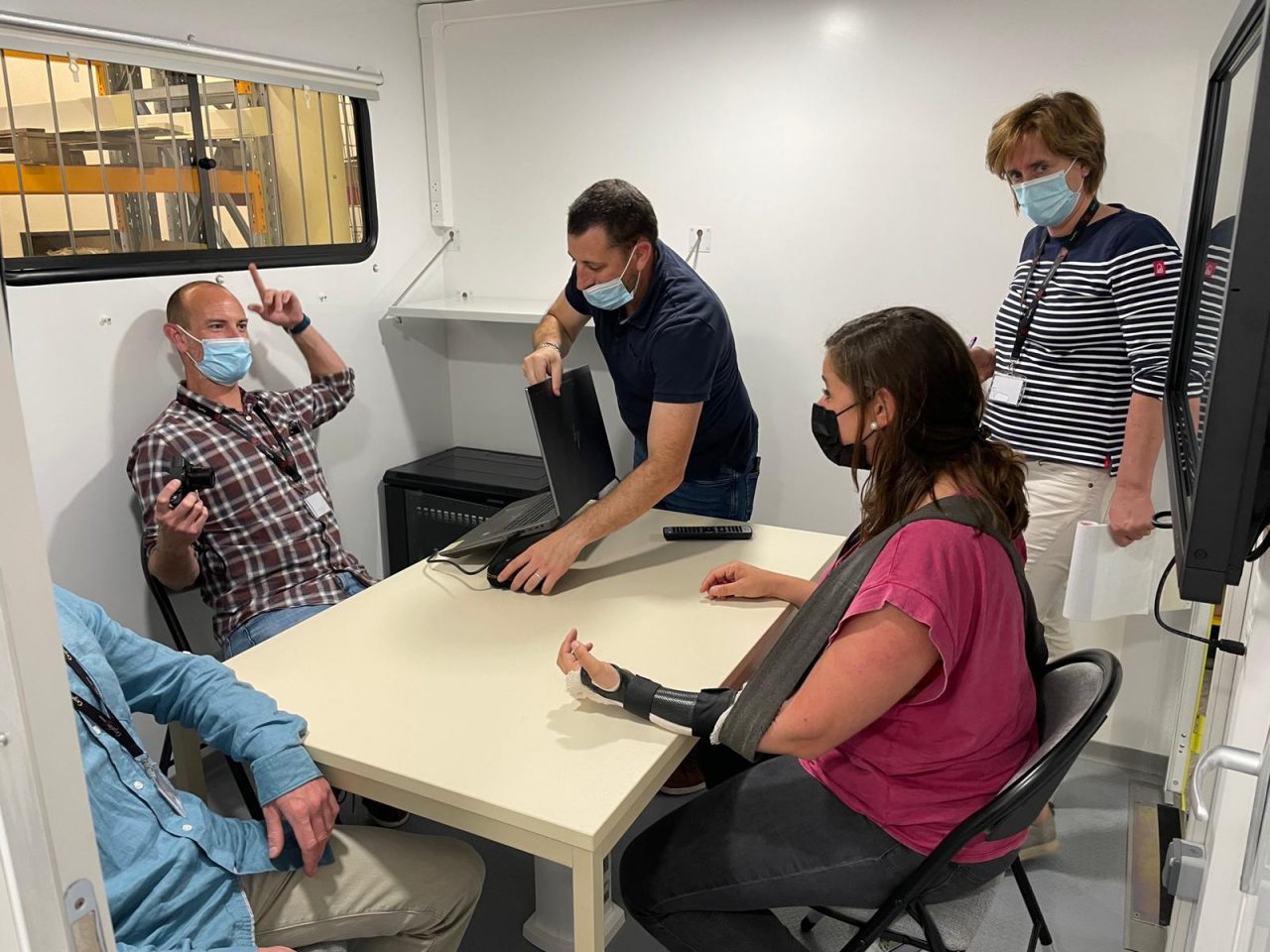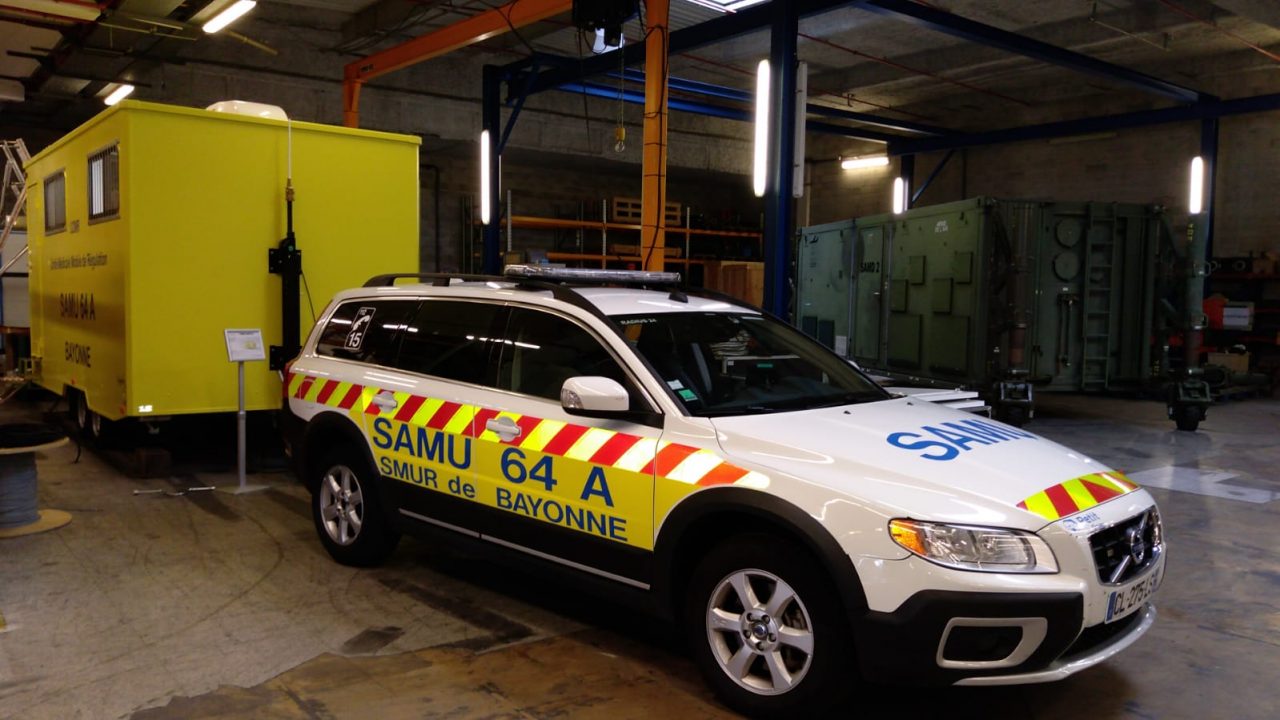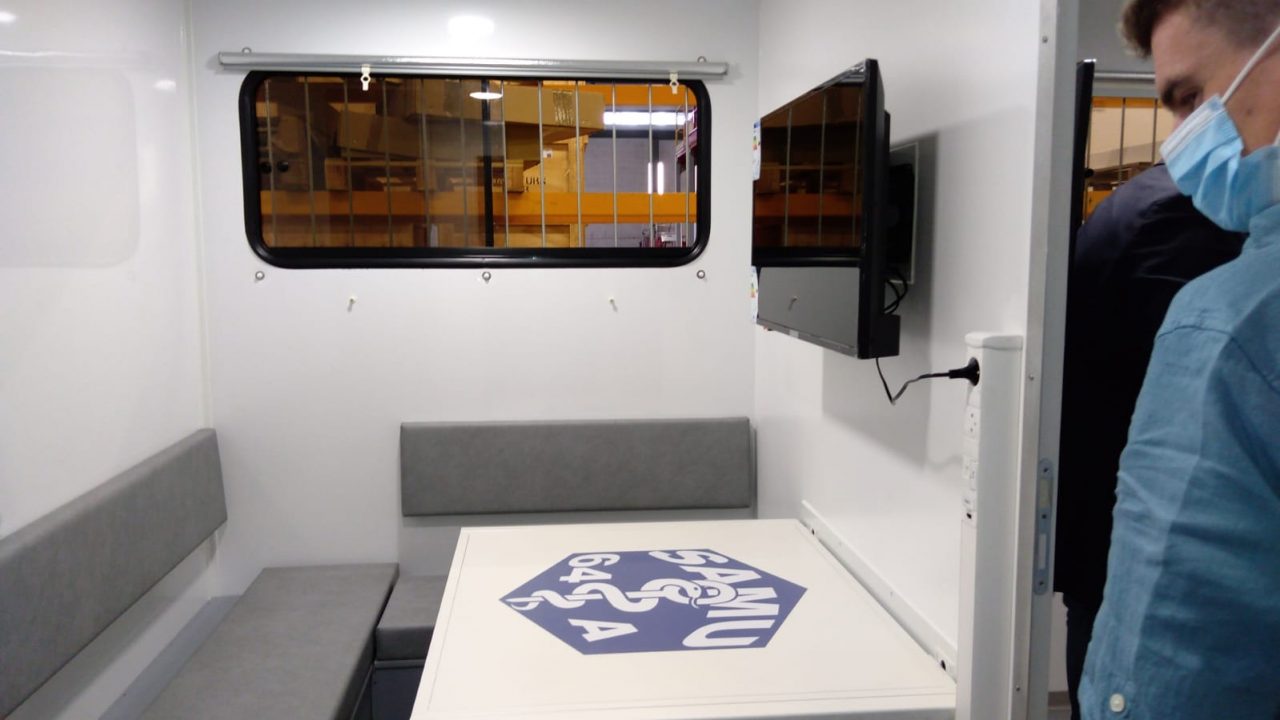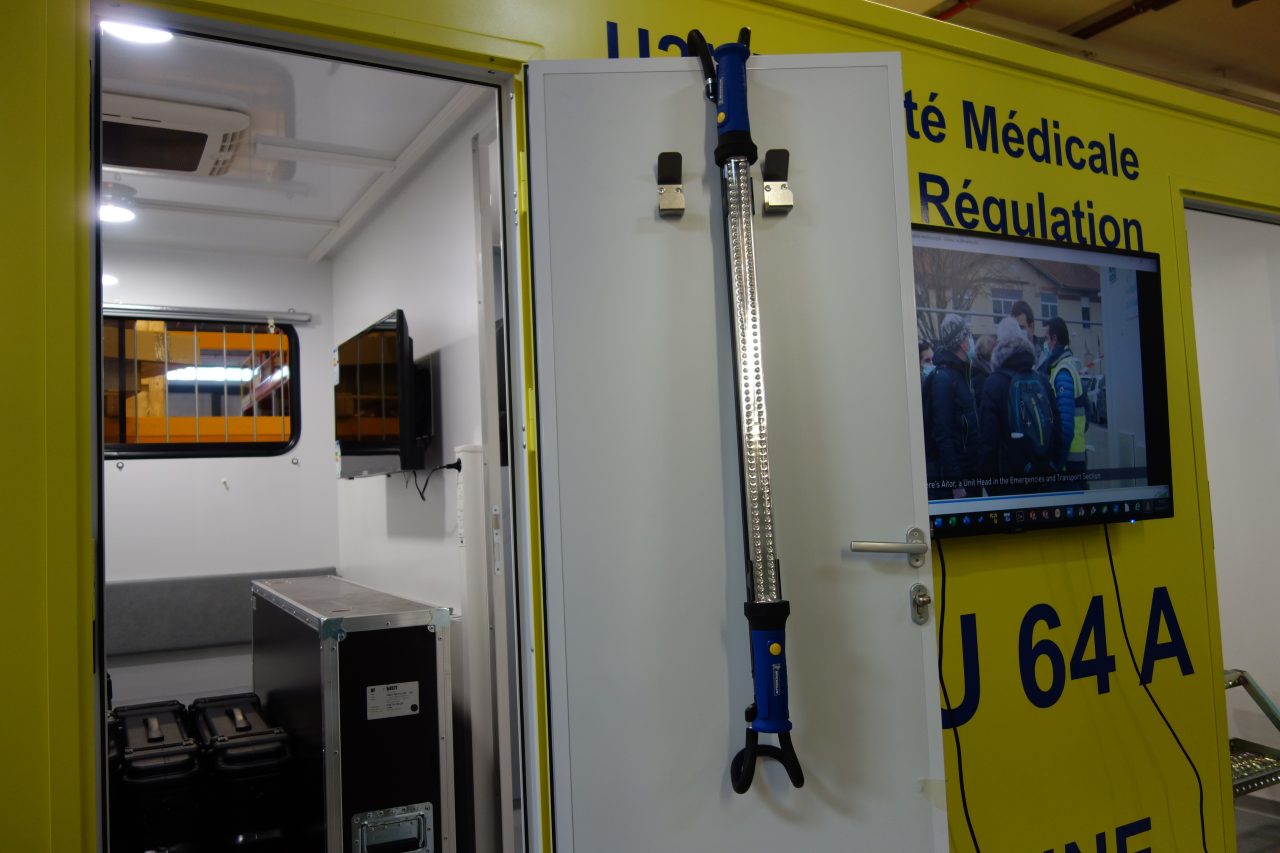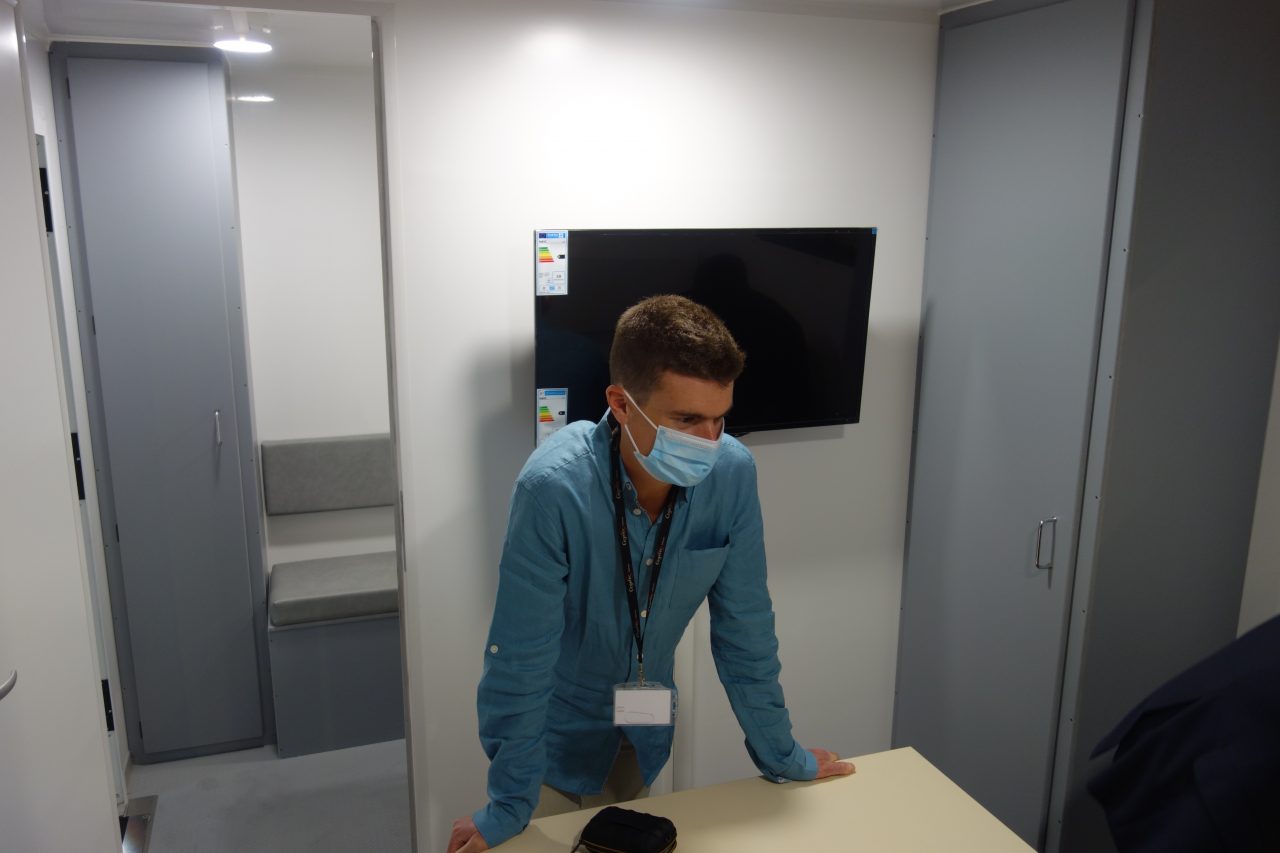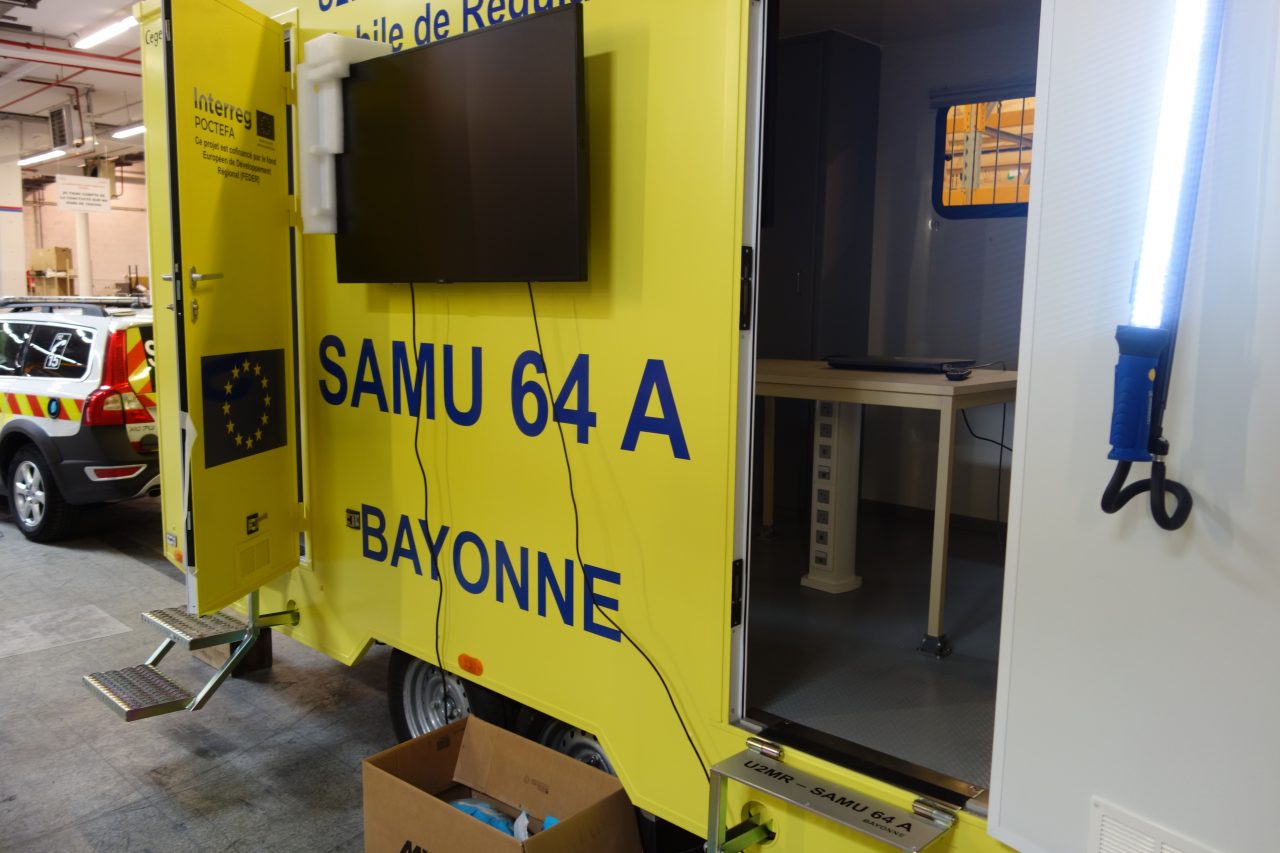The Hospital Center of the Basque Coast has developed the mobile unit within the framework of the innovation action of the EGALURG European cooperation network
The Hospital Center of the Basque Coast and the SAMU of Bayonne, one of the partner organizations of the EGALURG European cooperation network, has developed the U2MR, an original and innovative mobile unit for coordinated medical response that will provide healthcare coordination at major events, emergencies and disasters by moving the resource management center to the site of the incident. The aim is to ensure hospital coordination centers are not overwhelmed with patients and to reduce communication gaps between organizations and healthcare personnel to a minimum. The mobile unit was built within the framework of EGALURG Action 6 on innovation and development.
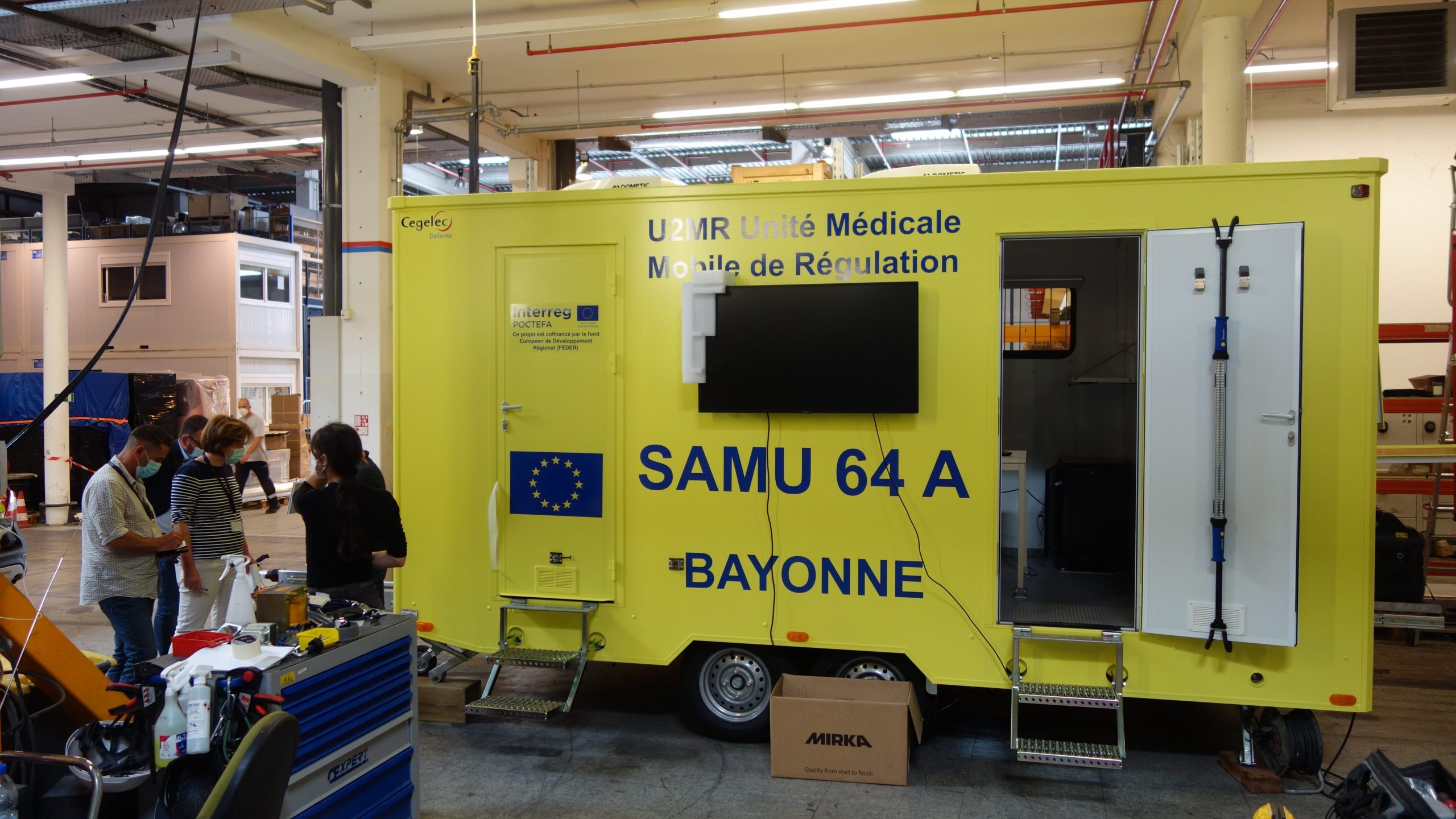
The U2MR will become the communication center for medical management of the disaster and the direct connection point between the advanced medical station and the healthcare services at the site, such as firefighters and healthcare personnel in charge of helping and evacuating victims. The mobile unit will also be responsible for sending real-time information on incident developments to the medical coordination center in the area. It is expected to be set up near medical stations such as the Europe Occitanie Multipurpose Mobile Unit (UMPEO) designed by the Hospital Center of Toulouse (CHUT), the EGALURG Project leader, and funded by the project.
The 16.8 m2 unit is 3 m high and consists of a module that can be towed by a passenger car. Emergency Medical Services IT equipment has been integrated into the unit, which will be used mainly for disaster medicine. It will have direct Internet and satellite connections to ensure optimum management of each incident. Touch screens will also be installed to facilitate data sharing among team members and radios will be used to distribute information to the medical personnel throughout the site with the aim of guaranteeing permanent connection and coordination. The module also contains a separate meeting room, an outdoor area shaded with an awning and a computer monitor to display information.
The U2MR is expected to be operative in September and may be used by partner organizations on both sides of the Pyrenees for real disasters and simulations. The mobile unit will be based in Bayonne and managed by SAMU 64, located at the Hospital Center of the Basque Coast.
Nicolas Harcaut, a member of SAMU 64 and EGALURG, was happy with the result. He said, “We’re proud to see this project come to fruition and we want to thank everyone involved for their hard work. The unit is a major step forward in terms of improving and optimizing patient healthcare and the way medical personnel work in crisis situations. Every minute that goes by is vital in an emergency and this tool will help us reduce action times to a minimum and ensure more effective communication and coordination.” Harcaut said that the satellite connection would be available in August to make the unit completely operative. “That means the mobile unit will be ready to handle disasters,” he said.
Visit to Cegelec facility
On 4 June, a team from the Hospital Center of the Basque Coast and the Hospital Center of Toulouse visited the facilities of Toulouse company Cegelec (the builder of the U2MR) for the first technical inspection of the unit. The two partner organizations were able to take a look at the mobile unit for the first time and make final arrangements for delivery. The SAMU team thanked the heads of the engineering firm on behalf of both hospitals for their fine work and professional performance, and for helping provide a response to the needs of emergency medicine in France and, through EGALURG-POCTEFA, in the Pyrenees.
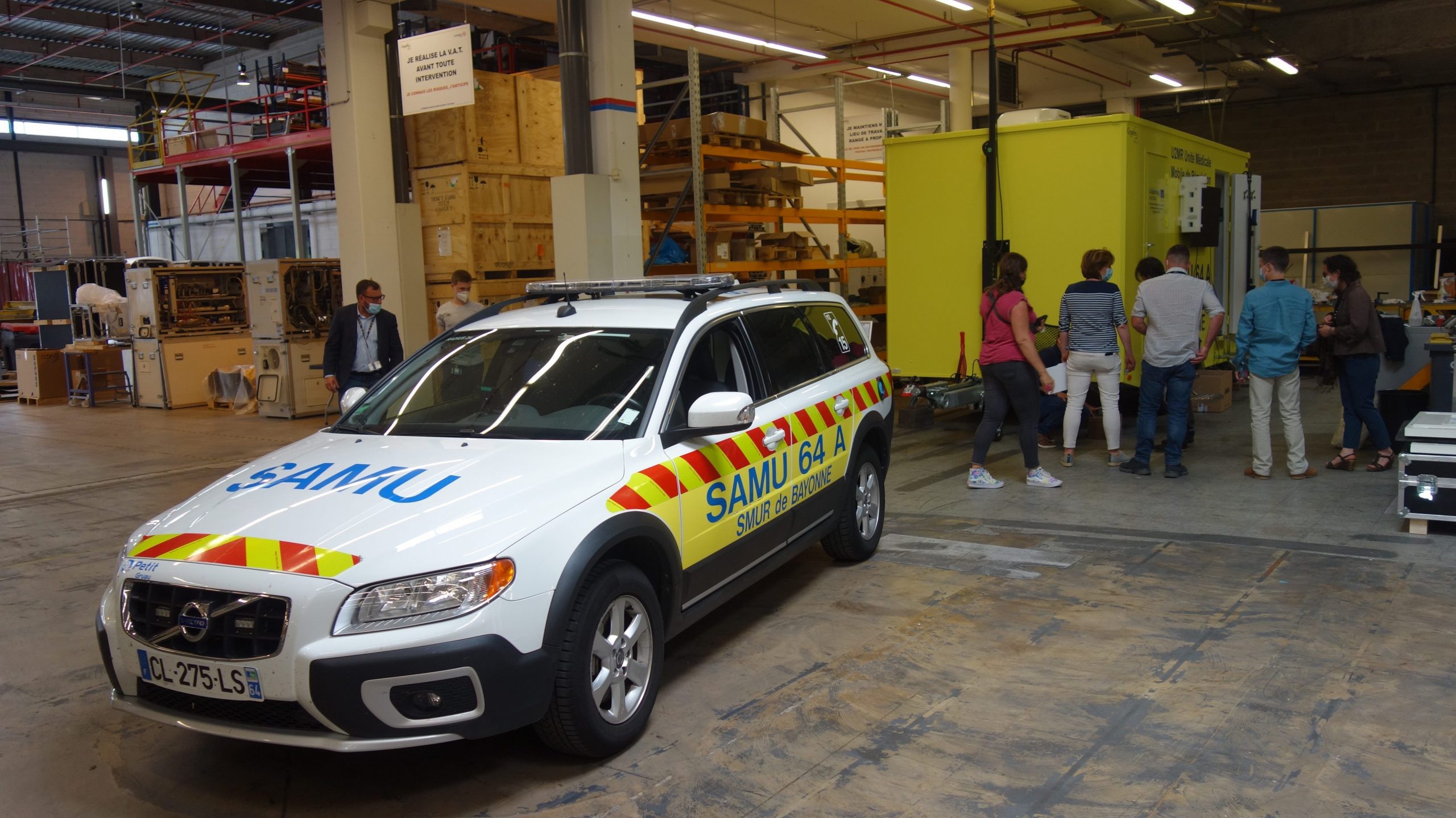
Also working on the project are professionals from the Navarrabiomed Biomedical Research Center and the Emergency Medical Services of Catalonia, which are partners of the EGALURG European cooperation network. The project is co-funded (65%) by the European Regional Development Fund (ERDF) through the Interreg Program V-A Spain-France-Andorra (POCTEFA 2014-2020). The goal of the POCTEFA Program is to strengthen the economic and social integration of the Spain-France-Andorra cross-border area. Its help is focused on developing cross-border economic, social and environmental projects through joint strategies in favor of sustainable regional development.
